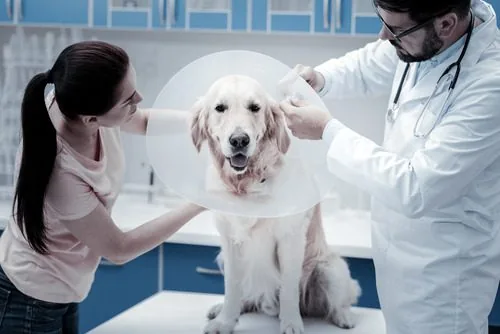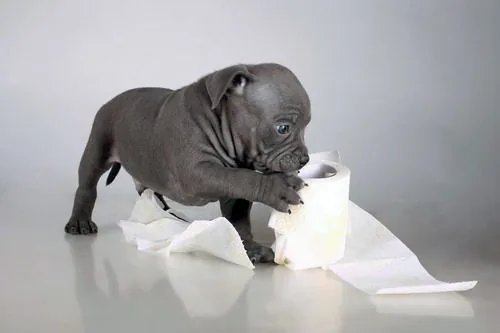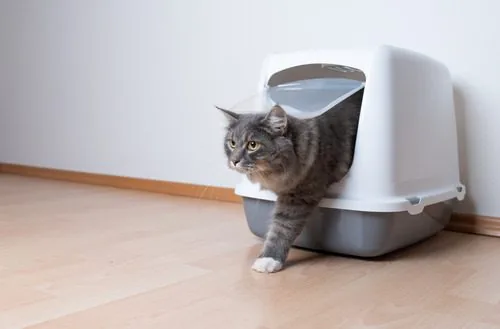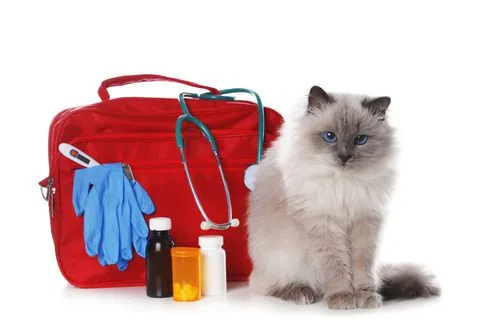The Science Behind Why Cats Love Cardboard Boxes
Have you ever noticed that when you order a big, expensive gift for your cat, they are more attracted to the cardboard box it came in than the actual gift? You are not the only cat parent whose efforts have been overlooked for a cardboard box.
Cats fancy cardboard boxes because they are a secure place to retreat. They offer warmth and protection from other pets and people, and cats enjoy playing in them. Cats also have a great time scratching and chewing at the box, which can be harmless fun as long as you supervise them.
Your feline companion may like cardboard boxes because they have many purposes. To understand more about why felines have affection for cardboard boxes, peruse this article.

Why Do Cats Love Cardboard Boxes?
If cat videos all over the internet are proof of anything, it is that cats love cardboard boxes. Felines adore cardboard boxes as much as sunbathing, watching and listening to the songbirds outside, chasing mice, and their favorite treats. There is a science behind why your cat loves cardboard boxes so much. The following include some research-backed reasons why.
They Provide Comfort
A Cardboard box will comfort cats who need a warm, safe place to take shelter. They give cats security and a place to rest. A study conducted in PLOS ONE showed that cats who came into a Dutch animal shelter for the first time utilized cardboard boxes given to them for comfort and to adapt to a new, scary situation.
The study revealed that the cats suffered from chronic stress beforehand, and the boxes helped. Hiding enrichment decreases behavioral stress in shelter cats and offers some emotional protection. A box can help cats in situations that can trigger anxiety. If you have a cat, you do not need a study to know they feel comfortable chillin’ out in a box!
They Can Help Control Temperature
Cats need temperatures to be between 86 to 97 degrees Fahrenheit. Most homes have temperatures of about 72 to 76 degrees Fahrenheit, meaning most homes need to be warmer for cats. A cardboard box provides insulation for a chilly kitty, and the small space helps retain body heat.
The above are some box-free options. The way a cat gravitates toward a cozy, isolated spot in the home or to a heat register to obtain warmth during colder months is similar to a cat who wants to get into a box. A cat in a box is a feline following their instinctual need to seek shelter and keep warm.
They Bring Out the Wild Feline in Them
As it turns out, wild felines are equal targets and hunters. A cat’s primary method of hunting is to hide and wait to be able to jump out and capture their victim. A cardboard box allows them to perform a sneak attack on their unsuspecting prey and then rush into the box to hide from eager predators. A domestic cat hiding in a box is a way for them to benefit from mental enrichment.
Cats may like hiding in boxes to express their natural instincts, as it is the ideal place to wait and pounce. Just ensure that when you play with your cat, you allow them to catch their “prey occasionally.” This will help prevent undue stress in your cat if they cannot reach their target. Plus, watching them practice the “kill bite” on their toy can be quite adorable!
Make no mistake, a cat is a cat, whether domesticated or wild, and they all love boxes.
They Help Them Avoid Dangerous Situations
A study published in Applied Animal Behavioral Science indicates that cats love to sit in boxes even when it is only a two-dimensional outline shaped like a box on the floor. A working theory is that a cat sees a shape with borders as a way to protect themselves from dangerous situations. Once again, the wild cat does not want to walk into danger or fall off a cliff. They may see the box as protection from harm.
They Like to Scratch and Chew the Box
Another reason that cats love boxes is that they provide a place for the cat to scratch their nails. Your feline may love the feel of the box, giving them a great place to chew and claw.
Another common occurrence is when a cat chews on the flaps or the side of the box, it is their way of scent-marking the box with their pheromones.
Most of the time, chewing on a box is not dangerous. However, ensure your cat is only chewing on it and not eating it.
They Are Ideal for Anti-Social Cats
Let’s face it: some cats do not want to be bothered. Maybe you have company in the home your cat does not know, making them uncomfortable. Instead of trying to get to know your guests, they hide in a box.
Another scenario is that they want to get away from other pets in the home, and they deduce that the cardboard box is their best option.
They Are Curious
Cats are known for their boundless curiosity, and as every cat parent will tell you, cats will investigate just about anything that piques their interest. The natural smell of the box entices them, and they are curious to know, what is this strange object in the room? Cats will climb into a box to find out if it can be their new bed, and usually, they find that they like the accommodations.
Be Careful with Cardboard Boxes
Just a quick bit of wisdom, if you offer boxes to your cat, remove all potentially dangerous material like staples, string, tape, and loose pieces. If your cat ingests these items, it could create a life-threatening blockage. Ensure your cat does not consume any part of the box, as it is unsafe.
You should also never shut your cat inside the box because it can make them feel claustrophobic. You should leave the box open, and if you want, put a cozy blanket in it and a few of your cat’s favorite toys. Leave the box on the floor for your cat to climb into when they want a safe place to retreat.
Conclusion
Felines love cardboard boxes for a variety of reasons. They provide comfort and security, and cats like to chew at and scratch on them. Science has shown that cats love boxes, whether lifelike or two-dimensional.
If your cat is among the many felines fascinated by cardboard boxes, create a safe area to hide away, enjoy the warmth, and exercise their feline instincts.
Are you looking for a veterinarian for your pet? Veterinary Healthcare Associates in Winter Haven, FL is here to help. Give us a call at (863) 324-3340 today!
Recent Posts
Laparoscopic Spay vs Traditional Spay: What’s Best for Your Dog?
Laparoscopic Spay vs Traditional Spay: What’s Best for Your Dog? When comparing a laparoscopic spay vs traditional…
Laparoscopic Spay: Everything You Need to Know
Laparoscopic Spay: Everything You Need to Know Laparoscopic spay, also called a “minimally invasive spay,” is an…
When is Dog Diarrhea an Emergency?
When is Dog Diarrhea an Emergency? Dog owners know all too well that occasional digestive upset isn’t…
Is Cat Constipation an Emergency?
Is Cat Constipation an Emergency? Cats are often private about their habits, especially when it comes to…
Feline Emergencies: Warning Signs Your Cat is Crying for Help
Feline Emergencies: Warning Signs Your Cat is Crying for Help Cats have a reputation for being independent,…
About Veterinary Healthcare Associates
Veterinary Healthcare Associates in Winter Haven, FL, was established over 30 years ago as Maxwell Animal Clinic by Dr. John Maxwell. Maxwell Animal Clinic was a one-doctor general practice offering preventive care, dentistry, and standard surgical services to the community. As the years passed, Maxwell Animal Clinic evolved into a thriving 10-doctor general, specialty referral, and emergency veterinary practice.








